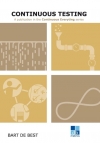 € 39,95
€ 39,95
Continuous Testing is an approach that aims to provide rapid feedback in the software development process by defining the 'what' and 'how' questions as test cases before starting to build the solutionContinuous Testing is an approach that aims to provide rapid feedback in the software development process by defining the 'what' and 'how' questions as test cases before starting to build the solution. As a result, the concepts of requirements, test cases and acceptance criteria are integrated in one approach. The term 'continuous' refers to the application of test management in all phases of the deployment pipeline, from requirements to production. The term 'continuous' also includes the aspects People, Process and Technology. This makes test management holistic. This book is a publication in the Continuous Everything series. This book is a publication in the Continuous Everything series. The content consists of treating Continuous Testing based on a definition, business case, architecture, design, and best practices. Concepts discussed are: the change paradigm, the Ideal Test Pyramid, test metadata, Behaviour Driven Development, Test Driven Development, test policies, test techniques, test tools and the role of unit test cases in Continuous Testing. In this way you are quickly up-to-date in the field of DevOps developments and in the field of Continuous Testing.
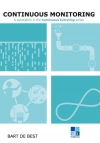 € 56,45
€ 56,45
Continuous Monitoring is an approach to get a grip on both core value streams (business processes) and enable value streams that support these core value streams.Continuous Monitoring is an approach to get a grip on both core value streams (business processes) and enable value streams that support these core value streams. Continuous Monitoring differs from classical monitoring by its focus on outcome improvement and the holistic scope with which value streams are measured, i.e., the entire CI/CD secure pipeline for all three perspectives of PPT: People, Process and Technology. The approach includes People, Process and Technology, which makes it possible to identify and eliminate or mitigate the bottlenecks in your value streams. This book is a publication in the Continuous Everything series. The content consists of a discussion of the monitor functions defined in the continuous monitoring layer model. This layer model classifies the monitor tools available on the market. Each monitor archetype is defined in this book in terms of definition, objective, measurement attributes, requirements, examples, and best practices. This book also indicates how to set up Continuous Monitoring in your organisation based on the change manager paradigm and architecture principles and models. With this integral agile approach to monitoring, you have a powerful tool at your disposal to set up the controls for the control of your value streams.
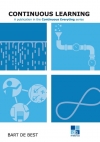 € 39,95
€ 39,95
Continuous Learning is an approach to get a grip on the competences needed to realize your organisation's strategy.Continuous Learning is an approach to get a grip on the competences needed to realize your organisation's strategy. To this end, Continuous Learning offers Human Resource Management an approach that explores the organisational needs and competences step by step and converts these needs into competency profiles. A competency profile is defined here as the set of knowledge, skills and behaviour at a certain Bloom level that produces a certain result. Competency profiles are then merged into roles that in turn form functions. In this way an Agile job house is obtained. This book is a publication in the Continuous Everything series. The content consists of a discussion of the Continuous Learning model that helps you to translate a value chain strategy step by step into a personal roadmap for employees. This book also indicates how to organize Continuous Learning in your organisation based on the paradigm of the change manager and architecture principles and models. With this agile approach to HRM you have a powerful tool to get the competences to the desired level of your organisation.
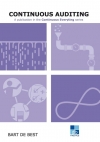 € 56,45
€ 56,45
With this Agile approach to auditing you have a powerful book to get a grip on the compliance of your Agile system development and management.Continuous Auditing is an approach that aims to enable DevOps teams to demonstrate in a short cyclical manner that they are in control when realizing, taking into production and managing the new or modified products and services at a rapid pace. As a result, compliance risks are prevented by already thinking about which risks to mitigate or eliminate from the requirements and the design based on them. This book is a publication in the Continuous Everything series. The content consists of a discussion of the Continuous Auditing Pyramid model that describes the six steps to give substance to Continuous Auditing, namely: determining scope, determining goals, identifying risks, realizing controls, setting up monitoring facilities and demonstrating effectiveness of controls. The Continuous Auditing concept thus encompasses the entire lifecycle of risk management. As a result, the risks are continuously under control. With this Agile approach to auditing you have a powerful tool to get a grip on the compliance of your Agile system development and management.
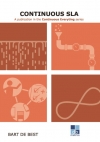 € 56,45
€ 56,45
Continuous SLA focuses on recognising risks that can harm the outcome of business processes (core value streams).Risks arise as a result of new construction and maintenance of information systems through Agile teams. Within the concept of Continuous SLA, these risks are analysed from different perspectives and provided with countermeasures by the DevOps team, also known as SLA controls. By making these SLA controls measurable, they become suitable planning objects that can be placed on the product backlog. This book is a publication in the continuous everything series. The content consists of the discussion of techniques to identify and manage risks such as the use of Lean indicators, value stream mapping and information, application and technical architecture building blocks. In addition to the core value streams, the enable value streams such as services management, information security and development value streams are also examined for risks that directly or indirectly harm the outcome. The recognized SLA controls are anchored in the Agile way of working by deepening the collaboration between, among others, the product owner and service level manager. This integrated approach to SLA controls makes it possible to get grip on quality in Agile projects.
Dalton IDee (voorheen Dalton Paspoort). Kwantumkortingen worden automatisch gegeven als u meerdere exemplaren tegelijkertijd bestelt van dit artikel: 10 of meer exemplaren: 5% korting 30 of meer exemplaren: 10% korting 100 of meer exemplaren: 15% korting
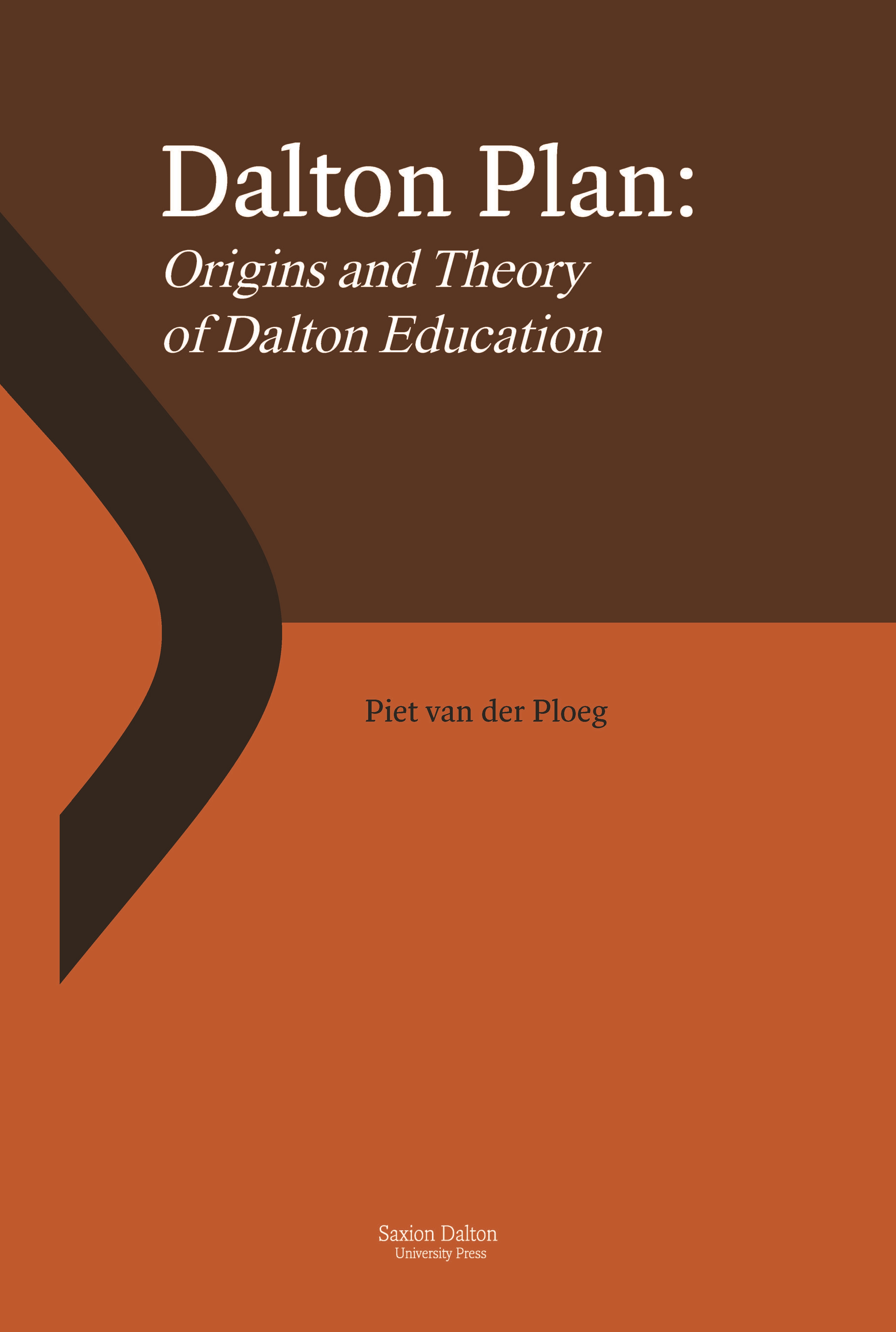 € 25,95
€ 25,95
Dr. Piet van der Ploeg lectures Philosophy of Education at the University of Groningen in the Netherlands. His research interests include the history of reform education and the philosophy of citizenship education. Apart from John Dewey, no American educational reformer has been as internationally successful and influential as Helen Parkhurst, the founder of Dalton education. In the 1920s and 1930s, Dalton education was spread throughout the world. At the moment the Netherlands is the country with the highest density of Dalton schools. Almost four hundred elementary schools (five percent of all) are Dalton schools. This historical and theoretical study gives an account of the practice and the theory of the Dalton Plan. Next it discusses the background and context of the Dalton Plan. It also compares the Dalton Plan to other critical and innovative approaches to education. Helen Parkhurst was herself not keen on historical and theoretical exercises. This study shows that historical and theoretical research is interesting nonetheless. It demonstrates the distinctiveness of Dalton education, for instance: *that learning by experience is not the same as learning by doing and that experience doesn't have the same role for Parkhurst as it does for other reformers; *that there are important differences between working with assignments in the Dalton Plan and working with materials in the Montessori Method; *that the Dalton Plan holds efficiency as its main objective, whilst at the same time opposing the efficiency-hype seen at the beginning of the twentieth century; *that the meaning of cooperation in the Dalton Plan is not the same as what we usually mean by this; *that Parkhurst's school as a community distinguishes itself from Dewey's school as a community; and *that freedom in the Dalton Plan is something other than freedom of choice.
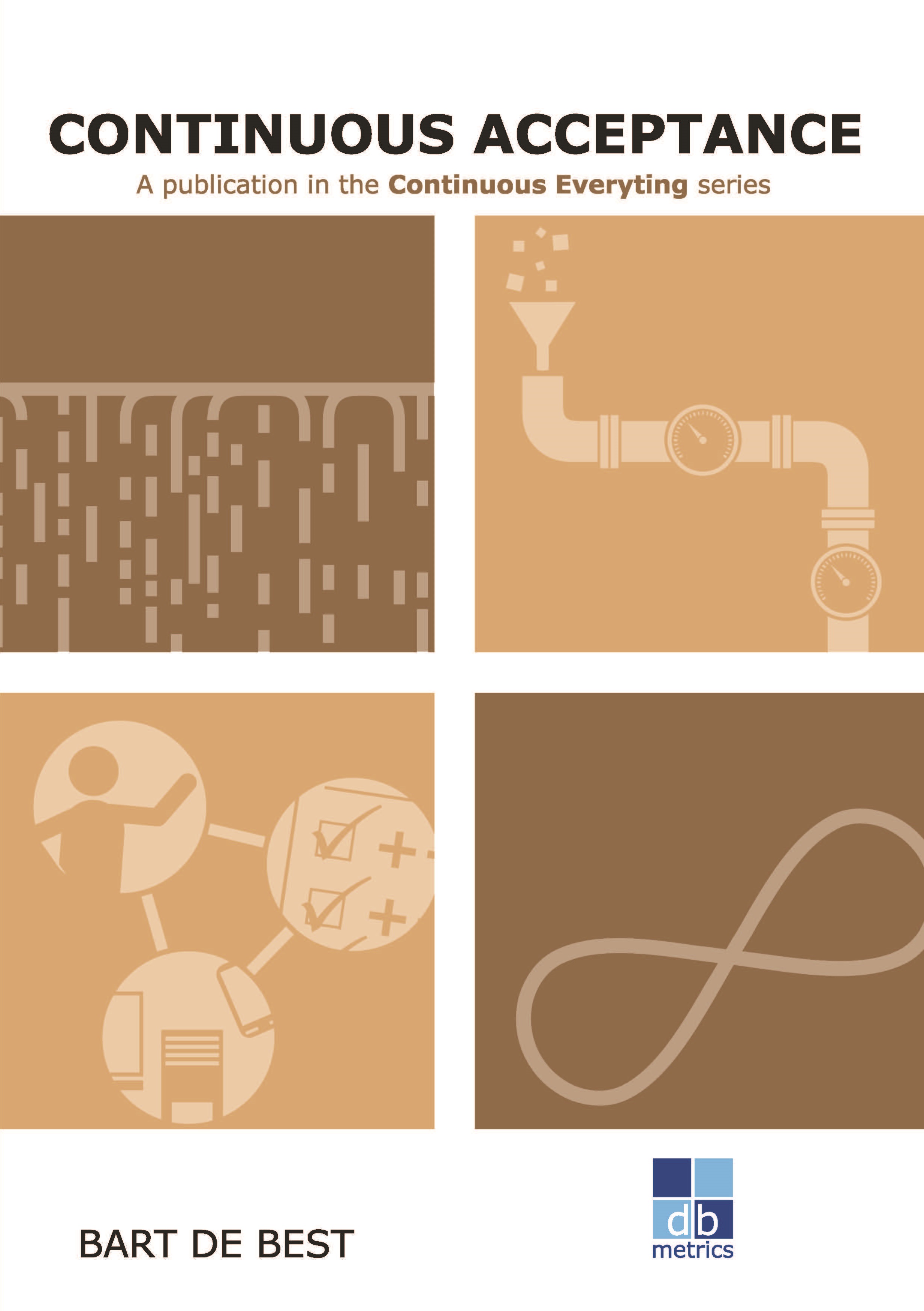 € 56,45
€ 56,45
In this CE value stream, the specific acceptance criteria are derived from the business value streams by looking for the risks that the business goals are not achieved. The countermeasures for these risks are tested for effectiveness through acceptance tests. By analogy, the generic acceptance criteria are derived from the CE value streams that flesh out the DevOps Lemniscate. This book is a publication in the continuous everything series. The content consists of the discussion of the derivation of acceptance criteria. An example elaboration is also given for specific acceptance criteria and a number of generic acceptance criteria are given for the following value streams: Continuous Planning, Continuous Design, Continuous Testing, Continuous Integration, Continuous AI, Continuous Deployment, Continuous Monitoring, Continuous Learning, Continuous Security, Continuous Auditing, Continuous SLA and Continuous Assessment.
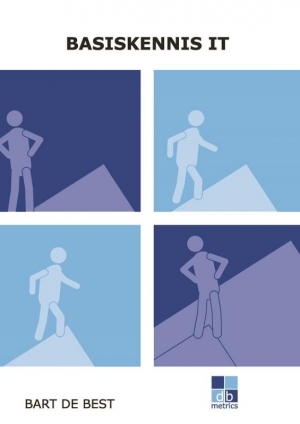 € 39,95
€ 39,95
Het boek Basiskennis IT geeft een goede impressie wat dit vakgebied omvat. Zonder dat vele details worden besproken krijgt de lezer een uitleg van de meest essentiële begrippen en concepten van de IT. De doelgroep van dit boek is studenten, schoolverlaters en mensen die zich willen laten omscholen tot een beroep in de IT. Daarom is het een heel nuttig middel als voorbereiding op IT trainingen. Over de inhoud van Basiskennis IT Het boek behandeld IT begrippen vanuit vier perspectieven: het IT landschap, het ontwikkelen van software, het beheren van software en trends in de IT. Hierbij worden tal van begrippen en concepten behandeld op het gebied van informatie, maatwerkprogrammatuur, systeemprogrammatuur, softwarepakketten, middleware, hardware, netwerk, processen, methoden en technieken. Op deze wijze kun je snel jouw weg vinden in de wereld van IT, het begin van een reis van leren. Basiskennis in IT is een must-have voor professionals die veel met de IT te maken hebben, zoals sales consultants, managers, IT recruiters en juristen die IT zaken afhandelen. Werk je vaak samen met IT’ers, maar hoor je vaak termen die je niet kan plaatsen? En wil je meer basiskennis over IT-begrippen, processen en ontwikkelingen? Volg dan een van onze trainingen om je meer wegwijs te maken in de IT terminologie.
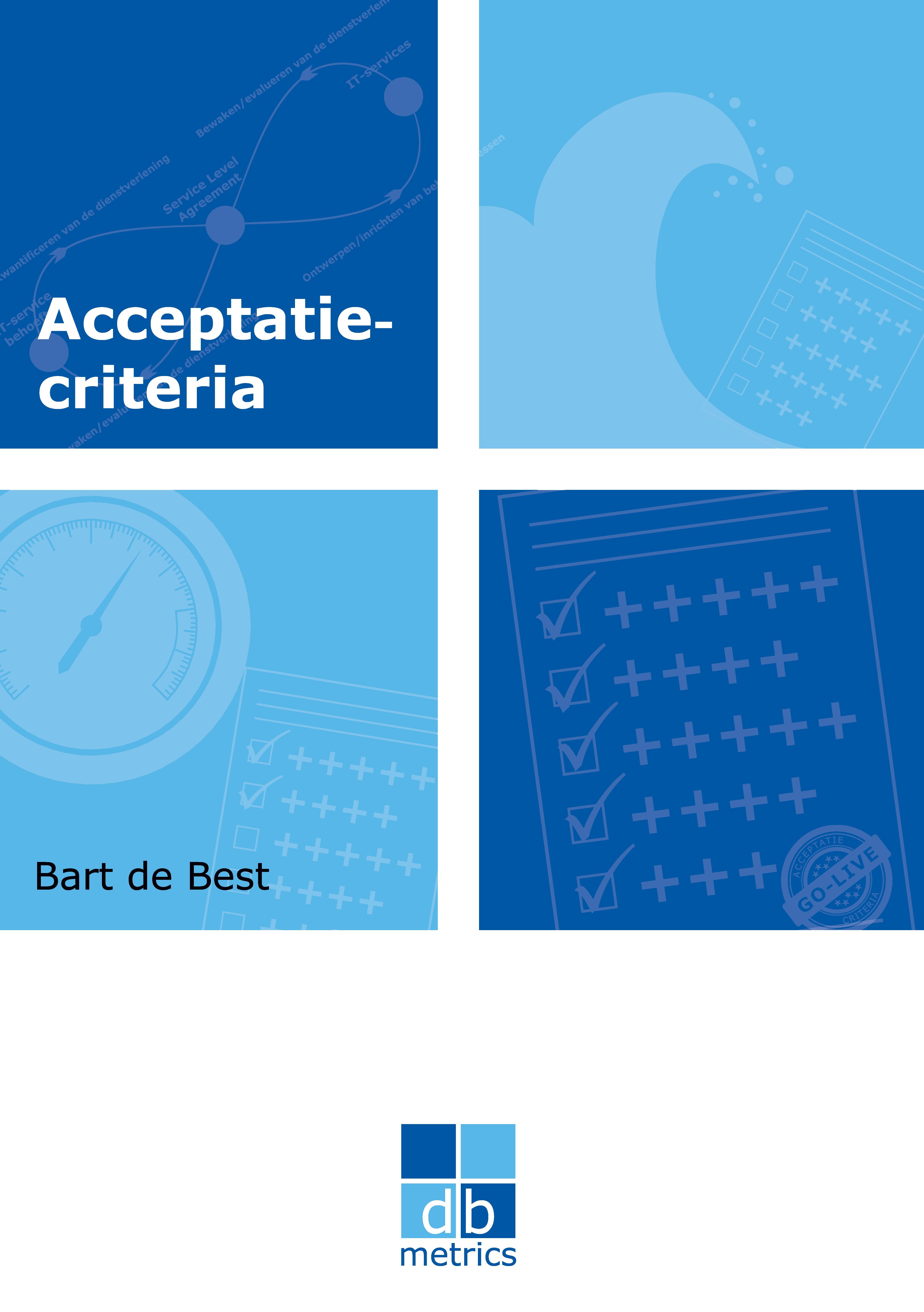 € 56,45
€ 56,45
Acceptatiecriteria zijn een meetinstrument voor zowel gebruiker als beheerder om te bepalen of nieuwe of gewijzigde informatiesystemen voldoen aan de afgesproken requirements ten aanzien van de functionaliteit, kwaliteit en beheerbaarheid Acceptatiecriteria zijn een meetinstrument voor zowel gebruiker als beheerder om te bepalen of nieuwe of gewijzigde informatiesystemen voldoen aan de afgesproken requirements ten aanzien van de functionaliteit, kwaliteit en beheerbaarheid. Er komt heel wat kijken om acceptatiecriteria te verankeren in beheerprocessen en systeemontwikkelingsprojecten. Het opstellen en het hanteren van acceptatiecriteria voor IT-producten en -diensten geschiedt bij veel organisaties met wisselend succes. Vaak worden acceptatiecriteria wel opgesteld, maar niet effectief gebruikt en verworden ze tot een noodzakelijk kwaad zonder kwaliteitsborgende werking. Dit boek geeft een analyse van de oorzaken van dit falen van de kwaliteitsbewaking. Als remedie worden drie stappenplannen geboden voor het afleiden, toepassen en invoeren van acceptatiecriteria. De doelgroep van dit boek omvat alle partijen die betrokken zijn bij de acceptatie van ICT-producten en ICT-services: de klanten, de leveranciers en de beheerders. Ook is er nog een doelgroep die niet accepteert, maar vaststelt of correct is geaccepteerd; hiertoe behoren kwaliteitsmanagers en auditors die het boek als normenkader kunnen gebruiken. In dit boek is een aantal casussen opgenomen die diverse manieren laten zien voor het effectief en efficiënt omgaan met acceptatiecriteria.
 € 22,50
€ 22,50
Holistic Pulsing is natuurlijk en plezierig. Het is een methode van het zacht en vloeiend aanbieden van een wiegende en strekkende beweging in een bepaald ritme en volgens een speciale techniek. Hierdoor wordt je lichaam teruggevoerd naar zijn eigen oerritme, wat verbonden is met de onbewuste herinnering aan zijn ontstaan in het water van de koesterende, veilige baarmoerder. Dit brengt een diepe ontspanning teweeg, die ontkoppelt van angst en overlevingspatronen en die contact laat voelen met je essentie, die inzichten geeft in je leven. Tevens wordt je zelfhelende vermogen geactiveerd.Omdat Holistic Pulsing heel subtiel en diepgaand kan werken vinden steeds meer hooggevoeligen hun weg naar deze voor hen zo passende methode.
 € 49,95
€ 49,95
Een leraar wordt een daltonleraar en een school een daltonschool als er gewerkt wordt vanuit een daltonvisie. En je bent een goede daltonleraar en een goede daltonschool als die eigen daltonvisie op een effectieve en efficiënte manier wordt gerealiseerd. Dalton: L E F ondersteunt teams, individuele leraren en pedagogisch medewerker zich bewust te worden van de eigen daltonvisie en helpt om die eigen visie door te ontwikkelen. Het boek biedt ook praktische ideeën om een onderwijspraktijk te realiseren die gestoeld is op zo’n daltonvisie. Met andere woorden: in Dalton: L E F worden de ‘why’, ‘how’ en ‘what’ van het daltononderwijs besproken. Het gaat daarbij om breed persoonsvormend onderwijs dat geïnspireerd is op het gedachtegoed van Helen Parkhurst, waarbij kinderen leren om mee te praten en mee te beslissen over het eigen leren en over het onderwijs dat daarvoor ingericht moet worden. Want een stem krijgen in de eigen ontwikkeling levert kinderen ervaringen op om uit te groeien tot een ‘mens met lef’.
